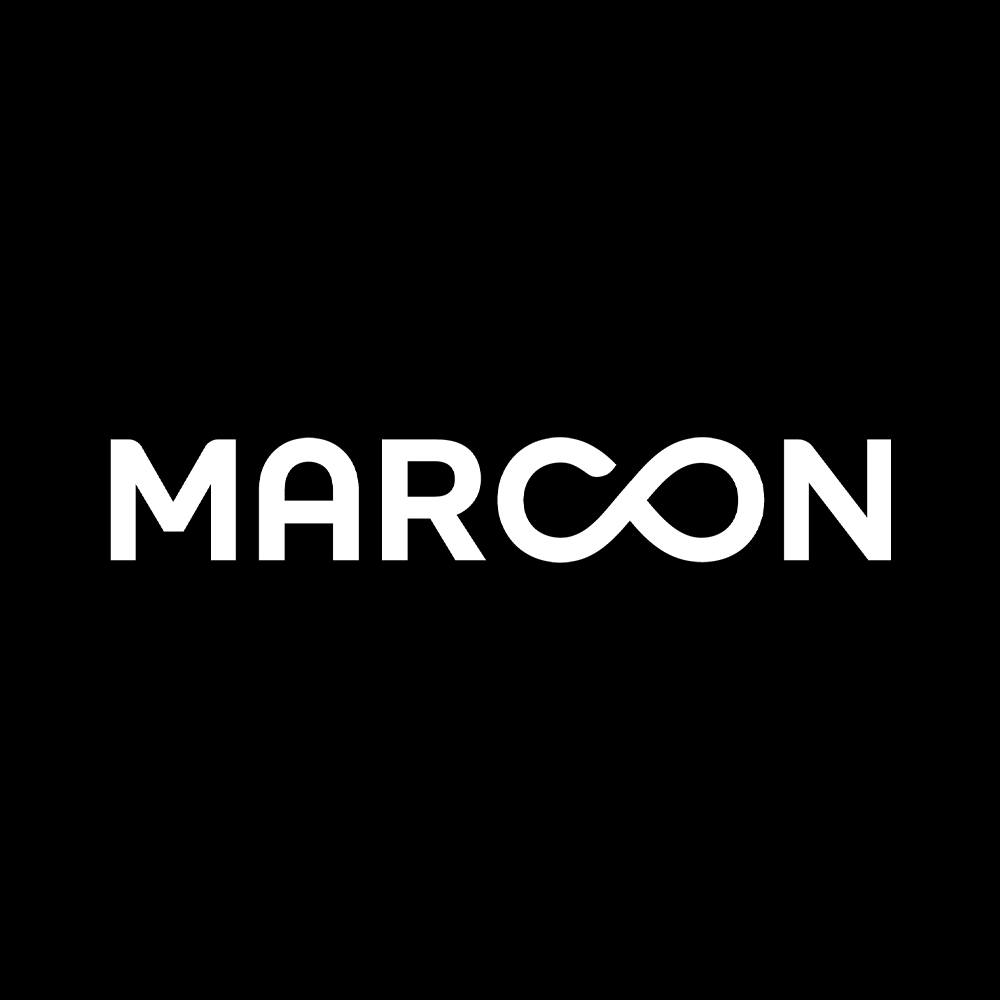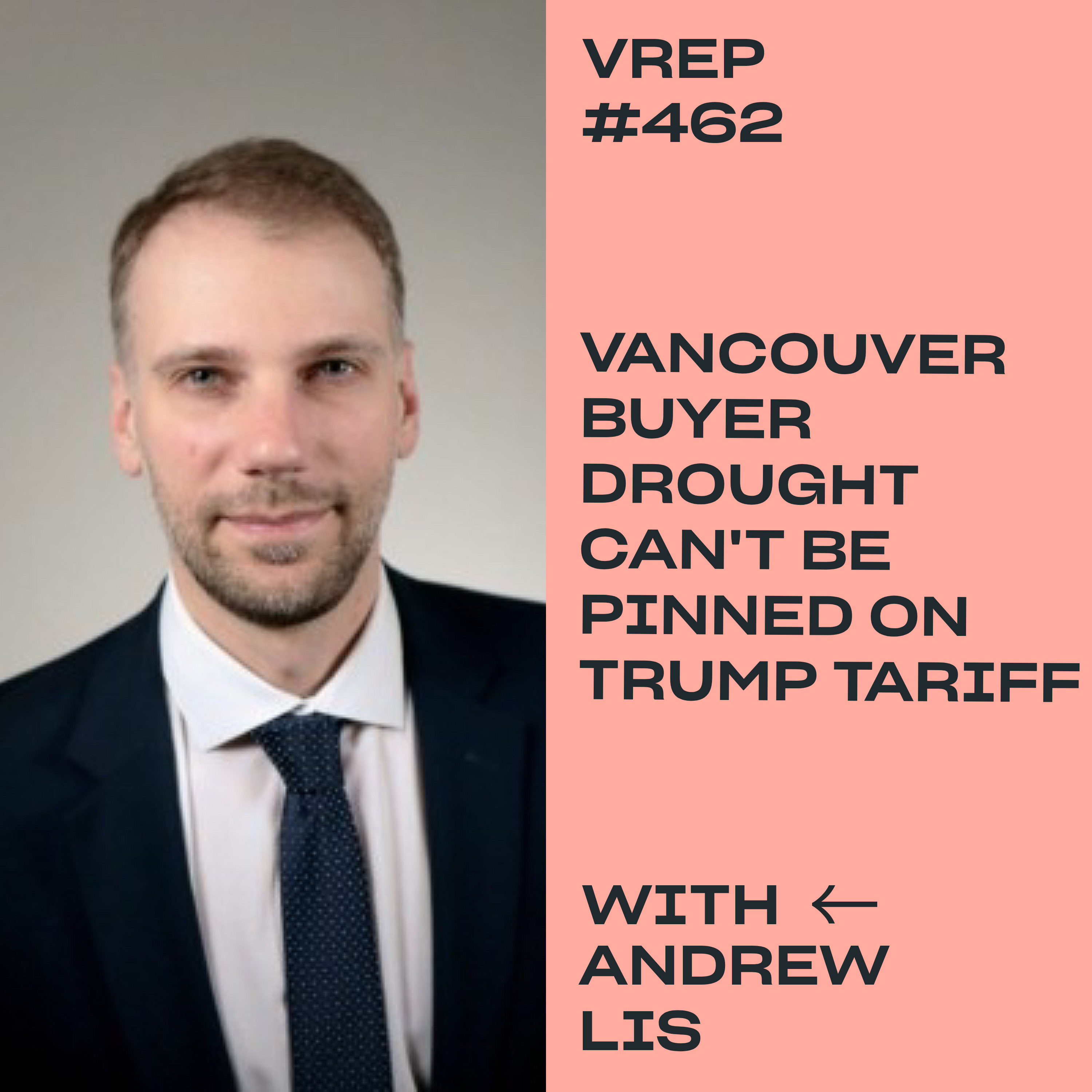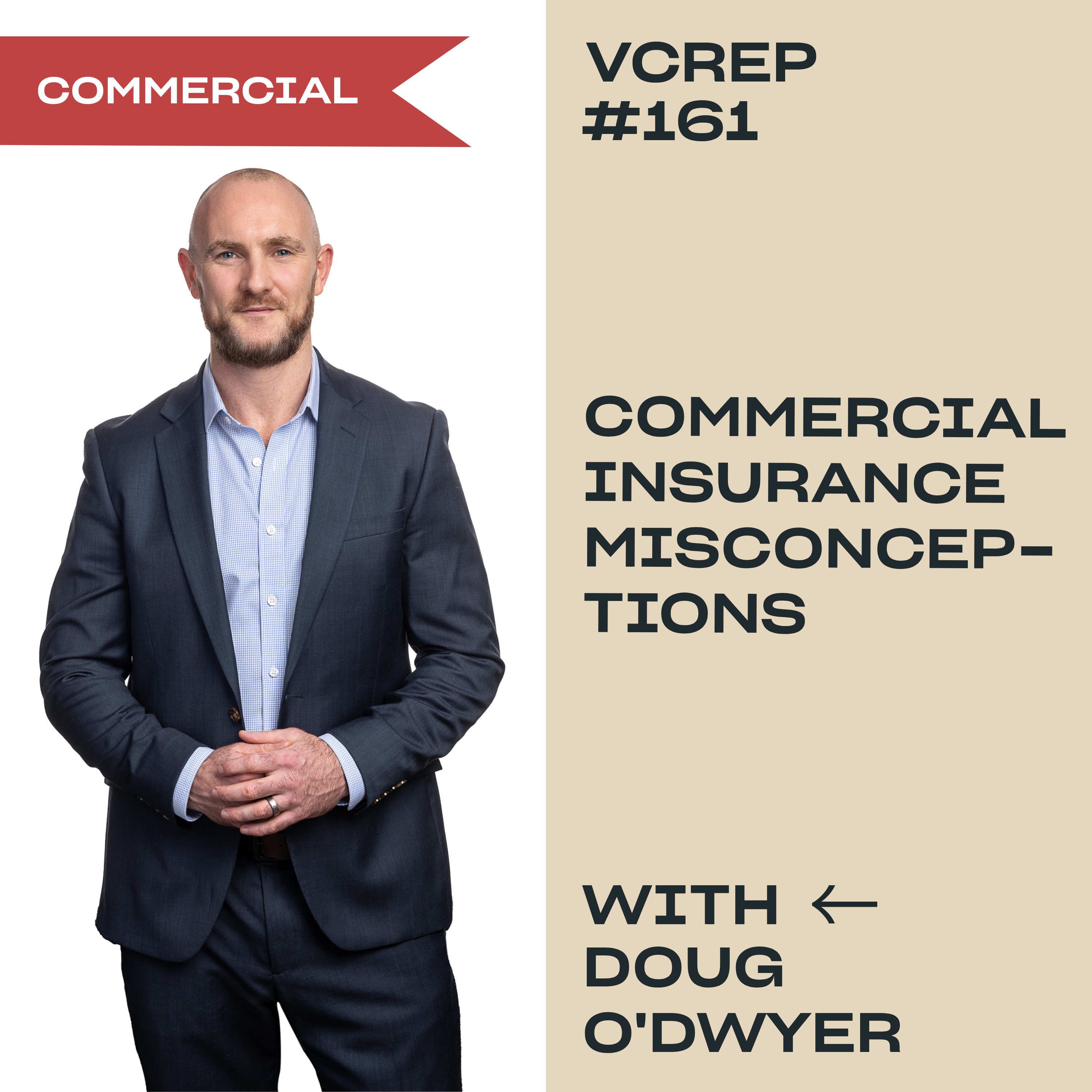Episode 360 – February 23, 2023
Listen On: Apple Podcasts | Spotify | Google Podcasts | YouTube
$373.3 Billion. Big number, right? That is the total value of mortgage-free real estate holdings in Metro Vancouver as of 2021. And 55% of that insanely large number is controlled by those between the ages of 55 & 74. In other words, Vancouver Boomers are real estate rich & their children will be the ultimate beneficiaries. But what good is all that equity if it is tied up in clear-title real estate?
Mortgage Broker Marci Deane sits down with Adam & Matt to discuss strategies that allow homeowners to tap into that equity potential – whether to use as gifts for downpayments, to invest in other real estate, or to just live your best life. So, if you have a lot of equity in your home, now is the time to give Marci a call. And if you are a Millenial struggling with a downpayment, now is the time to share this podcast with mom & dad. Your [Parents] are Richer than You Think!
Guest Information
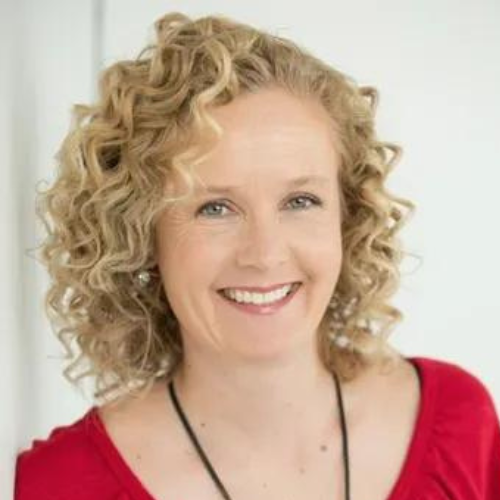
Marci Deane
Marci Deane is a mortgage broker with Mortgage Architects working in Vancouver BC. With over 25 years of professional experience in banking, mortgages, real estate and finance she has earned a reputation for being an exceptional leader, savvy business woman and an award winning networker. Integrity is at the core of everything she does and the results are happy and loyal clients.
Marci’s goal is to make your home ownership dreams come true by understanding your individual needs and then implementing the most cost effective financing solution through outstanding service, market knowledge, industry experience and leading edge technology.
Marci lives in North Vancouver and enjoys an active family life with her husband, two children and two dogs. She tries to keep fit by running, paddle boarding and doing yoga. She enjoys volunteering and networking but also loves to curl up with a good book and a nice glass of pinot gris.
Episode Summary
Learn all about reverse mortgages and the great generational wealth transfer happening in Vancouver. Should you get a HELOC or a reverse mortgage? Mortgage broker Marci Deane has the answer!
What is the state of mortgage-free real estate in Metro Vancouver? How does that impact the generational wealth transfer we’ve been seeing in recent years?
Adam & Matt: In 2006, the total value of mortgage-free real estate in Metro Vancouver was $123.8 billion. Half of that was owned by homeowners 55-74 years old. By 2021, that number tripled to $373.3 billion. And the amount owned by 55-74 years old was more than 55%.
The big takeaway: Boomers are real estate rich in Metro Vancouver.
We’ve been watching the generational wealth transfer over the last couple of years. Boomers want to help their kids get into the market. And for most, that help with a down payment is the only way for young adults to get into the market.
One of the ways for people to tap into the wealth in their real estate is through a reverse mortgage, which Marci Deane is going to tell us all about.
Who is Marci Deane?
I have been in the mortgage brokerage business for 16 years and own my own brokerage, Ask Marci. I also work with Mortgage Architects. I’ve been married for 25 years and have two kids. I do all things residential mortgages.
How is the real estate market?
It’s very interesting. It’s quiet but I do have a number of pre-qualification clients on my desk. People in Vancouver still make a lot of money so the numbers work, even with higher interest rates. But there’s not a lot of product.
We’re all waiting. Prices might go down but lack of listings is a big concern. I’m doing a lot of counselling on rates, payments doubling, people coming up for renewals, etc. That’s a big part of my day.
Are people panicking about interest rates?
There are a fair number of people who don’t understand what’s happening. They’ve been on static payments for the last few years and so it doesn’t feel like anything has changed. But now they’re getting letters from their lender saying they’re approaching their trigger rate or trigger point, which leaves them confused.
Renewals are coming up from lenders at quite high rates. But you should always talk to a mortgage broker. You don’t have to stay with your previous lender. There are a lot of conversations going on right now.
Keep your finger on the pulse of Vancouver’s real estate market with our Live Wire email newsletter.
Did the steep increase in interest ratessurprise you?
Did we see this coming? Nope. Did I tell people to go variable? I did. I’m in variable mortgages myself. It’s painful, but I’m still not locking in. We knew rates weren’t going to stay at 1.45% forever. But did we think we’d get to this place this fast? No one thought that.
We were telling our clients that rates historically only rise a quarter point at a time. But that wasn’t the case in 2022. And then you have inflation on top of it. All of a sudden, everyone is a junior economist. People are talking about it!
A lot of people went with variable mortgages last year. What are you telling people now? Should buyers choose variable or fixed rate mortgages in 2023?
In the last few months, sometimes it’s become a mental health concern. If you’re calling me to talk about rates every week, maybe we need to come up with a strategy to fix you in.
For people who are a couple of years into a variable mortgage, they might be able to fix in for a three year term. It might not be a good economical move but if it can help you sleep at night, that’s important.
For new mortgages, I’m doing three year fixed rates in a lot of cases. If clients have less than 20% down and are first time home buyers on a tight budget, a five year fixed mortgage might make sense. You can set it and forget it, even if the numbers might not be in your favour by year four or five.
Mortgage renewals are a whole other conversation. For someone who locked into a five year fixed rate in 2018, they had a rate in the 2’s. Now, they’re getting offers in the 5’s. It might be time to refinance or reamortize.
Historically when we see a huge run up in interest rates, things stabilize and then rates come back down. Do you think that will happen this time?
I do think that’s what we’re in for. That’s why I’m still in a variable mortgage. I think by the end of 2023 we’ll see a rate cut. But I don’t think we’ll come down as fast as we went up.
There’s a lot of pent up demand in the market, so we’re probably going to have an amazing 2024. But this year, we’re in for it. It’s going to be a tougher 2023.
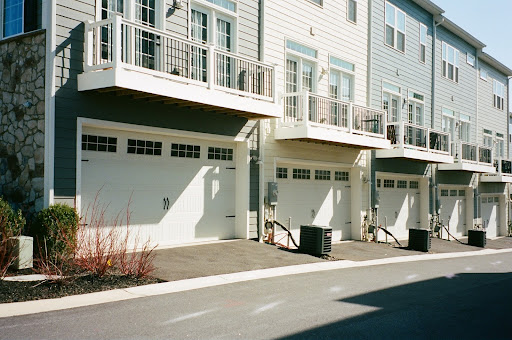
Which buyer demographic has been hit the hardest and disappeared from the market?
The mover-uppers – the people who are in a townhouse and want to move into a house or are in a house but want to move into a bigger house – have been hardest hit in this market.
They can’t sell because what happens if they can’t find something new to buy? And the numbers don’t add up. Many can’t qualify for the home they have right now. The reality based on the new rates of what they can move up to just doesn’t make sense. They can’t move into anything better.
First time home buyers with two incomes are okay but a single income is tricky.
You need $120,000 for a $400,000 mortgage in Vancouver right now. It’s shocking how much you need to be making in 2023 for mortgages that were flying off the shelf in 2021.
Are there still a lot of young Millennial or Gen Z buyers in the market?
They’re discouraged, unless they have financial support from their families. There’s a lot of fear and anxiety out there.
No one wants to be the person who bought at the top. Anytime they talk to their friends, there’s always someone who has that 2% mortgage and says, “What do you mean you locked in at 5%?”
There seems to be a fear of selling. People either don’t want to sell in a bad market, can’t afford to buy something new, don’t know how long their place will take to sell or don’t think they’ll get enough for it. There are lots of reasons to stay put and the timing is tricky.
People who are trying to downsize into a specific type of home have to put together a very strategic plan just to allow them to buy and then sell. They have no idea how long it will take them to sell and when the property they want to buy will come up. Previously, you could just go buy with a long closing and sell your previous place within 30 days. But it’s not so easy anymore.
Keep your finger on the pulse of Vancouver’s real estate market with our Live Wire email newsletter.
What is the difference between a HELOC and a reverse mortgage?
A HELOC (home equity line of credit) is a traditional mortgage; you have to make a monthly payment. It’s interest-only but you do have to make a payment. You can draw from your available credit but to a certain limit.
HELOCs are stress tested; you have to income-qualify. The stress test is currently 8.95%, meaning the credit limit amount over 25 years at 8.95% has to stay below 39% of your household income. So you have to be making big bucks to qualify!
You get a HELOC when you’re a dual income household, have lots of money, etc. You cannot get a HELOC when your property is already listed for sale. You have to set up your HELOC before you make any moves.
A reverse mortgage is a mortgage for borrowers over 55 years old that you never make a payment on. You get a mortgage amount based on the value of your house and your age; the older you are, the more you’ll get.
It’s a product designed for an older clientele, someone in their 60s or 70s sitting on a free and clear home who wants to use their home equity to fund their lifestyle. You can use it to buy a second home, help your children, live a better life, etc.
In Canada, you’re programmed to pay off your mortgage, retire mortgage-free, and live off your pension and maybe some investments. But prices have gone up – gas, property taxes, groceries, etc. For many seniors, there are more expenses left at the end of the month than there is money in their bank accounts.
A reverse mortgage allows those people to pull money out of their home equity to fund their lives. You can also do a reverse mortgage as a lump sum to finish off some repairs, pay off debts or even pay off your mortgage if there’s enough equity. The payments are tax-free and you’re never underwater – the bank won’t give you more money than your house is worth.
I used to think reverse mortgages were a terrible idea but as I learned more about them, I began to see how they could work for people.
With a HELOC, you can go up to 65% of the value with 15% of that in a mortgage. It’s less with a reverse mortgage so there’s a huge buffer for market fluctuations. Women get more money than men, since men don’t live as long. Widowed women are a huge contingent of reverse mortgage holders. That allows them to stay in their community and not have to downsize before they’re ready.
What is the interest rate for a reverse mortgage?
Right now a five year reverse mortgage is around 7%. It’s going to be higher than a HELOC because there’s an opportunity cost to never making a payment. But if you run the math, even with a modest 1-2% house appreciation rate, there’s still a lot of equity left in the home after 20 years with 7% on a reverse mortgage.
With this product, I work with a financial planner, accountant and the adult children in most cases. It’s a big conversation. When adult children learn they can use a bit of home equity to keep mom in her home, they’re more than happy to do it.
Who is eligible for a reverse mortgage? What are the requirements of a reverse mortgage?
You have to be 55 years old to qualify for a reverse mortgage but most people aren’t looking at this until their 60’s or 70’s. We just ran an analysis for a woman in her 60’s who was concerned that there wouldn’t be enough equity in her house to move her into a care home in 20 years. But we ran the numbers and showed her that there still would be. I did that with a 1% appreciation and in conjunction with her financial planner.
The requirements for a reverse mortgage are you have to be at least 55 years old, it has to be your primary residence and you have to have equity in the home.
You can still have a mortgage on your home and get a reverse mortgage, but it can’t be an 80% loan to value ratio. The older you are, the more money you’ll get from a reverse mortgage.

Are reverse mortgages always fixed rates?
There is a variable option but it makes no sense right now. Most people will lock into a five year fixed reverse mortgage and at the end of five years, the rate resets. It’s not a regular mortgage renewal that you would shop around for.
For most reverse mortgage holders who are doing this in their 70’s or 80’s, the plan changes in five years. They may want a shorter term, have a downsize plan or, sadly, you’re dealing with an estate.
If the reverse mortgage holder passes away, you have 180 days to sell but there’s often more flexibility. I’m working with a family on the Gulf Islands right now who will probably sell a year after their mom passed away and the bank is fine with that.
What are the risks with a reverse mortgage?
Thank you for asking. Of course, there are risks. We do a lot of charts to show clients what their net equity will be by the end. Another requirement with a reverse mortgage is having ILA (independent legal advice); a separate lawyer sits down with the borrower to discuss what the plan is.
You are never in a negative equity position with a reverse mortgage in Canada. There was a lot of bad press with these products in the US in the 80’s but none of that is happening here.
How can you use a reverse mortgage?
A lot of people use a reverse mortgage to simply tap their home equity for cash flow. But there are some creative things you can do with reverse mortgages too.
Let’s say a couple on the west side of Vancouver has a mortgage-free $3 million home. We do a reverse mortgage to pull out $800,000 and buy them a condo through title. So the condo mortgage is on their title and they now have a condo that cash flows $2000 per month. That means they can net cash flow from the condo they rent out while their investments are down. And maybe they want to move into that condo one day.=
So their west side Vancouver house value is going up, their condo value is going up and, yes, their mortgage is also going up. But they still have their nest egg of investments. They’re using a reverse mortgage as a way to leverage a huge asset in retirement.
Is there income needed to qualify for a reverse mortgage?
There is an income test with a reverse mortgage; the lender will want to see CPP, OAS, etc. just to ensure that property taxes and maintenance on the home are accounted for. There’s always an appraisal required as well.
What is the most popular use of a reverse mortgage in Vancouver?
The most popular use of a reverse mortgage in Vancouver right now is to gift an early inheritance to children. That’s a huge move. Parents aren’t ready to sell but are sitting on a ton of equity. So they’ll take out $500,000 and give each kid $250,000 as their early inheritance.
There are parents who are gifting their children inheritances via HELOCs, but someone has to pay the interest on that. Whereas if you do it with a reverse mortgage, there are no carrying costs. It will just come out of the estate at the end.
The majority of my mortgage clients in Vancouver have a gifted down payment from family. It’s a huge thing here! And it has to be to afford a home in this market.
Parents being able to help their kids now, see the house and help them buy in the same neighbourhood is huge. Being able to keep family in the same community is very important.
Can you end a reverse mortgage?
If a family downsizes and no longer needs the reverse mortgage on their home, they can pay out the bank and buy a clear title smaller home. They won’t need a mortgage anymore.
There are penalties if you pay out a reverse mortgage in the first three years; this shouldn’t be something you’re planning to do for just a couple of years. There is another open product with Equity Bank for downsizers.
OFSI say the stress test may be increasing this year. What’s your take?
We’ll see what they do. If the stress test increases, it will have an impact in Vancouver, especially for people with multiple mortgages. If your mortgage can only be so much times your annual income, real estate investors could get hit.
There was a period of time when borrowers were taking variable mortgages because they could qualify for them when they couldn’t qualify for fixed rates. So the idea by OSFI to increase the stress test is in response to that, even though that problem isn’t a problem anymore.
Right now, it’s just an announcement about an announcement at the end of the year. I’m choosing not to worry; it’s too soon to worry.
Keep your finger on the pulse of Vancouver’s real estate market with our Live Wire email newsletter.
What is the difference between trigger rate and trigger point?
A trigger rate is the point when you are paying all interest, no principal, on your mortgage. A lot of people are at their trigger rate now because of the sharp rise in interest rates. That means you’re not paying any equity.
I’m at my trigger rate with one of my rental properties but I don’t care. That mortgage comes up in 2025 and I have a lot of equity in the property, so I can ride this out. I’m nowhere near my trigger point.
A trigger point is when your amount owed and the accumulated interest is 80% (percentage varies by lender) of the lender’s value of the property.
If you went into a home with 25% down and now you’re just paying interest (meaning you’ve hit your trigger rate), you probably won’t hit your trigger point. Your payments will stay the same (even though they’re now 100% interest); you’re just owing the bank more and more money. If you can, stay ahead of it and increase payments. But as long as you have lots of equity, there’s no need to worry.
However, for people who only put 5-10% down and haven’t added more equity, they may hit their trigger point. In Vancouver, this isn’t a lot of people. We do reverse mortgages and our parents help us with big down payments.
Once rates start coming down, less of your payment will go to interest and more will go to the principal. It will all balance out. But it may mean you thought you had a 20 year mortgage but now we have to reamortize to 30 years.
What are the different types of variable rate mortgages?
There are two main types of variable rate mortgages: standard and adjustable.
With a standard variable rate mortgage, your monthly payments are static. You pay the same amount each month, but where interest rates are will determine how much of that payment goes to principal vs interest.
If you’re paying mostly interest or only interest (trigger rate), your amortization period will extend. However, your monthly payment won’t change unless you hit your trigger point, which is rare in Vancouver.
With an adjustable variable rate mortgage, your monthly payment changes with the interest rate, meaning you could pay more or less each month. However, the timeline of your mortgage doesn’t change because you’re keeping pace with current interest rates and still paying your principal.
How are variable rate mortgage holders reacting to the interest rate changes?
People with adjustable variable rates are keeping up with the rates while people with static payments seem to have their heads in the sand. They may have a harder time at renewal.
Banks will send scary letters in these times to try and encourage mortgage holders to lock in. But you shouldn’t call your bank; call your broker. Because if you lock in and sell in a couple of years, you’re going to pay a huge penalty. So that’s a larger conversation you need to have with your mortgage broker.
What happens in the Vancouver real estate market in the next 1-5 years?
I think 2023 is going to be very slow for the Vancouver real estate market but we will bounce back. People are still coming to Vancouver in droves and people are making good money here. So I’m not worried about it. We do have to pull back this year; it’s an uncertain time but that won’t last forever.
In five years, we’re probably looking at a huge supply shortage. A lot of developers have stopped or slowed down right now. But people are coming to Canada. And when they’re coming to Canada, they’re not going to Winnipeg or Edmonton. They’re coming to Vancouver.
Even if we’re not at the bottom, if you have a 10 year plan, have cash and can get a mortgage, 2023 is a good year to buy.
Keep your finger on the pulse of Vancouver’s real estate market with our Live Wire email newsletter.
The 5 Wire: Getting to Know Mortgage Broker Marci Deane
What’s a book you recommend?
I just read The Palace Papers by Tina Brown over Christmas. I went down the Meghan and Harry rabbit hole! It’s a fascinating book; I couldn’t put it down. I’m also rereading Atomic Habits by James Clear right now, which is another great one.
I brought you The Boy, the Mole, the Fox and the Horse by Charlie Mackesy. I can’t wait to hear what you think about it.
What new belief, behaviour or habit has changed your life in the last five years?
My Peloton Tread. It’s not a bike – it’s a treadmill. Pre-covid, I was an Orange Theory junkie. When covid killed that, my Peloton Tread stepped in.
I have a few favourite trainers, you can compete against people, and there’s a band you can buy to track your progress. Yesterday there was a woman in Tulsa I was competing against. She beat me by 60 seconds and I was so mad!
What have you been binge watching lately?
I just blew through Madoff: The Monster of Wall Street and White Lotus. But sometimes I have to take a break from those and watch a Hallmark movie.
Favourite band or music genre?
I like all kinds of music. My Peloton guy is all 80’s, but I also love country!
What is something you’ve purchased for under $1500 in the last five years that has transformed your life?
I would say my covid dog. In the darkest days of covid, I brought her home without full authorization from my husband (but we’re still married!). It’s hard to be cranky when you have a 70lb happy, bouncy thing around you all day long.
Keep your finger on the pulse of Vancouver’s real estate market with our Live Wire email newsletter.
Episode Host

Adam Scalena
Adam is a full-service realtor, specializing in Vancouver’s best areas. His systematic approach to real estate and dedication to his clients has consistently placed him within the top 10% of realtors operating within Greater Vancouver.

Matt Scalena
Matt is real estate obsessed and considers himself a lifelong student of the Vancouver real estate market. As a co-manager of the Scalena Real Estate team, Matt prides himself on expertly advising buyers and sellers on all aspects of the fast-paced, dynamic Vancouver real estate market. He is present at every stage of the process, from that first phone call or email right through to when keys are exchanged between sellers and buyers.

